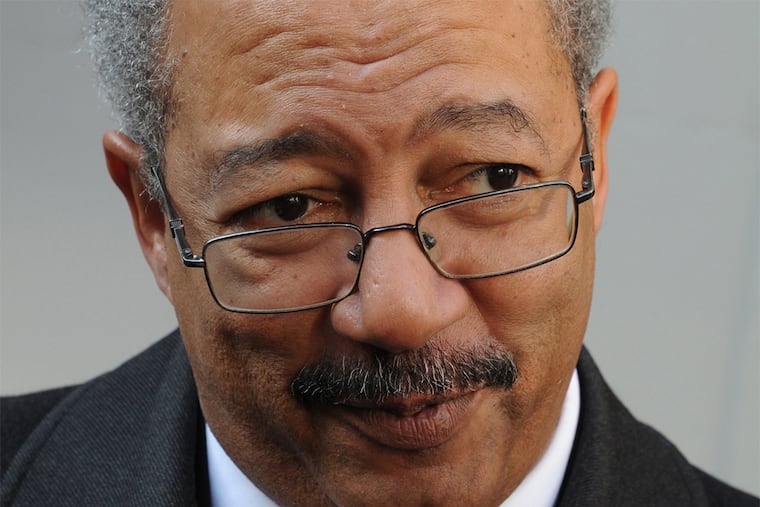Former Philly congressman Chaka Fattah’s attempt to shorten his 10-year corruption sentence was shot down by an appeals court
Fattah served more than two decades in Congress before he was brought down by a federal corruption probe that found he had stolen federal grant funds, charitable donations, and campaign cash for years.

A federal appellate court in Philadelphia has rejected former U.S. Rep. Chaka Fattah’s latest bid to reduce his sentence, one of the longest ever imposed on a member of Congress convicted of corruption-related charges.
The West Philadelphia Democrat had argued that his sentencing judge should have shaved time off the 10-year prison term he received in 2016 after the U.S. Court of Appeals for the Third Circuit tossed his conviction on several bribery counts two years later.
But a panel of Third Circuit judges ruled late Thursday that U.S. District Judge Harvey Bartle III was justified when he decided to keep Fattah’s sentence the same while re-sentencing him in July.
At the time, Bartle noted Fattah’s convictions for other crimes, including racketeering conspiracy, money laundering, and mail, wire, and bank fraud, still stood — and that keeping the sentence the same would deter “those in high places … from [abusing] the public trust.”
His “flagrant conduct undermines the confidence of the citizenry in the integrity of all public institutions and public officials,” the judge said at the time. “The cynicism saps the strength of our democracy.”
Fattah, 63, served more than two decades in Congress representing parts of Philadelphia and Montgomery County before he was brought down by a federal corruption probe that found he had stolen federal grant funds, charitable donations, and campaign cash for years.
The initial verdict in his case came just days before the U.S. Supreme Court issued a landmark ruling in a case involving former Virginia Gov. Robert F. McDonnell that narrowed the scope of what constitutes bribery in political corruption cases.
In tossing Fattah’s bribery convictions in 2018, the Third Circuit found that the jury in Fattah’s trial had heard “overwhelming” evidence that the congressman had accepted bribes from Herbert Vederman, a former Philadelphia deputy mayor, who was seeking a White House appointment. Those included cash payments to his children, college tuition for his South African au pair, and $18,000 to help with the purchase of a Poconos vacation home.
But because Bartle had instructed the jury under the old guidelines, it was unclear whether it still would have found him guilty had he used the new ones, the Third Circuit ruled.
Fattah’s lawyers — Bruce Merenstein and Samuel Silver — declined to comment on Thursday’s ruling.
U.S. Bureau of Prisons records show Fattah is still held at a federal prison in Wayne County. But Vederman, who was serving his 2-year prison sentence in upstate New York, has been released to house arrest as part of federal efforts to thin the inmate populations in response to the coronavirus pandemic.